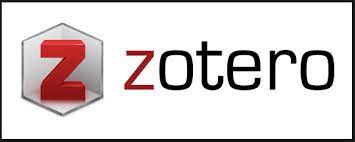ADDRESSING TAX AVOIDANCE THROUGH OECD BEPS POLICY: AN EVALUATION
Keywords:
Tax Avoidance, Oecd Beps Policy, EvaluationAbstract
BEPS consists of a series of measures created to close loopholes in international tax regulations that allow companies to channel their profits to jurisdictions with low or zero tax rates. The study conducted in this research uses the literature study method. The results show that the BEPS policy has successfully improved transparency and accountability in multinational companies' tax reporting. It strengthens transfer pricing rules, introduces country-by-country (CbC) reporting, and implements a multilateral framework to facilitate cooperation between countries in addressing tax issues. Nonetheless, implementation challenges remain, such as the need for companies to adjust their business structure and operations, as well as the importance of consistent coordination between jurisdictions in implementing this policy.
Downloads
References
Afiyanti, Y. (2008). Focus Group Discussion (Diskusi Kelompok Terfokus) sebagai Metode Pengumpulan Data Penelitian Kualitatif. Jurnal Keperawatan Indonesia, 12(1), 58–62. https://doi.org/10.7454/jki.v12i1.201
Akindayomi, A. (2023). Climate Policy Uncertainty and Corporate Tax Avoidance. Query date: 2024-07-18 14:14:54. https://doi.org/10.2139/ssrn.4518070
Belahouaoui, R., & Attak, E. H. (2024). Digitalization of Tax Administration and Tax Avoidance. Impact of Digitalization on Reporting, Tax Avoidance, Accounting, and
Green Finance, Query date: 2024-07-18 14:18:54, 200–225. https://doi.org/10.4018/979-8-3693-1678-8.ch009
Brock, G. (2023). Abusive Tax Avoidance and Tax Professionals’ Responsibilities. Corruption and Global Justice, Query date: 2024-07-18 14:18:54, 108–134. https://doi.org/10.1093/oso/9780198875642.003.0006
Brounstein, J. (2023). Estate Tax Avoidance and Private Benefit Through Charitable Giving.
Query date: 2024-07-18 14:18:54. https://doi.org/10.2139/ssrn.4390243
Cai, C. (2023). Customer–Supplier Digital Transformation and Corporate Tax Avoidance.
Query date: 2024-07-18 14:18:54. https://doi.org/10.2139/ssrn.4578455
Campbell, C., & Raizenne, R. (2021). Countering Tax Avoidance in Canada before the General Anti-Avoidance Rule. Studies in the History of Tax Law, Query date: 2024- 07-18 14:18:54. https://doi.org/10.5040/9781509939909.ch-013
Cerioni, L. (2020). Corporate tax harmonisation – Stage II: Coordination to fight tax avoidance and harmful tax competition. Research Handbook on European Union Taxation Law, Query date: 2024-07-18 14:18:54. https://doi.org/10.4337/9781788110846.00022
Danon, R. J. (2020). Chapter 15: The Beneficial Ownership Limitation in Articles 10, 11 and 12 OECD Model and Conduit Companies in Pre- and Post-BEPS Tax Treaty Policy: Do We (Still) Need It? Current Tax Treaty Issues, Query date: 2024-07-18 14:14:54. https://doi.org/10.59403/3gfx4ac015
Elkins, D. (2022). Embracing Tax Avoidance. SSRN Electronic Journal, Query date: 2024-07- 18 14:18:54. https://doi.org/10.2139/ssrn.4287175
Foster, H. (2021). Disclosure of tax avoidance schemes. Law and Regulation of Tax Professionals, Query date: 2024-07-18 14:18:54. https://doi.org/10.5040/9781526506238.chapter-004
Gjems-Onstad, O. (2023). Chapter 12: Tax Avoidance from a Norwegian Perspective: VAT Avoidance vs Income Tax Avoidance – The Norwegian 2020 Approach Many thanks to Professor Cécile Brokelind for her valuable comments and suggestions. EU Value Added Tax and Beyond: Essays in Honour of Ben Terra, Query date: 2024-07-18 14:18:54. https://doi.org/10.59403/1gx5n73012
Hakelberg, L. (2020). The BEPS Project. The Hypocritical Hegemon, Query date: 2024-07- 18 14:14:54, 106–130. https://doi.org/10.7591/cornell/9781501748011.003.0006
Hanlon, D. (2020). CEO-Board Social Ties and Corporate Tax Avoidance. Query date: 2024- 07-18 14:18:54. https://doi.org/10.26226/morressier.5f0c7d3058e581e69b05cf9c
Huang, F., & Gao, J. (2021). Customer and tax avoidance: How does customer geographic proximity affect a supplier’s tax avoidance? SSRN Electronic Journal, Query date: 2024-07-18 14:18:54. https://doi.org/10.2139/ssrn.3789371
Hutabarat, F. A. M. (2021). Corporate Governance terhadap Tax Avoidance pada perusahaan Manufaktur yang terdaftar di BEI. BISMA Cendekia, 1(3), 142–147. https://doi.org/10.56473/bisma.v1i3.42
Jing, zhongbo, Zhang, W., Zhao, P., & Zhao, Y. (2024). Environmental Tax Reform and Corporate Tax Avoidance: A Quasi-Natural Experiment Using China’s Environmental Protection Tax Law. Query date: 2024-07-18 14:18:54. https://doi.org/10.2139/ssrn.4735857
Jones, J. F. A. (2021). Chapter 3: The Definition of Company Residence in Early UK Tax Treaties and Its Influence on the OECD Model. WU - Tax Law and Policy Series, Query date: 2024-07-18 14:14:54. https://doi.org/10.59403/1szr2y5003
Joseph, A. (2021). Capital Gains Tax and Tax Avoidance – Recent Developments. Asia- Pacific Tax Bulletin, 26(4). https://doi.org/10.59403/3dvfqsx
Ki, E.-S., & Kim, H. (2022). Does Book-Tax Conformity Reduce a Corporate Tax Avoidance?: Analysis of Conforming Tax Avoidance and Non-conforming Tax Avoidance. The Institute of Management and Economy Research, 13(1), 231–245. https://doi.org/10.32599/apjb.13.1.202203.231
Kobetsky, M. (2020). The Status of the OECD Transfer Pricing Guidelines in the Post- BEPS Dynamic. International Tax Studies, 3(2). https://doi.org/10.59403/2rpcabz
Kollruss, T. W. (2022). Consolidated financial statements and global tax policy (OECD BEPS) insights from a multijurisdictional case study. SN Business & Economics,
2(9). https://doi.org/10.1007/s43546-022-00294-3
Leibrecht, M., & Rixen, T. (2020). Double Tax Avoidance and Tax Competition for Mobile Capital. Query date: 2024-07-18 14:18:54. https://doi.org/10.31235/osf.io/dgw5k
Maaloul, A. (2022). Did the Adoption of BEPS Country-by-Country Reporting Affect Multinational Tax Avoidance? Evidence from Canada. Canadian Tax Journal/Revue Fiscale Canadienne, 71(4), 1007–1049. https://doi.org/10.32721/ctj.2023.71.4.maaloul
Martínez, P. S. (2023). European Anti-Tax-Avoidance Regimes. The Oxford Handbook of International Tax Law, Query date: 2024-07-18 14:18:54, 679–696. https://doi.org/10.1093/oxfordhb/9780192897688.013.41
Olender, I. Ya. (2020). CLASSIFICATION OF WAYS OF TAX AVOIDANCE BY TAXPAYERS AND DIRECTIONS AND WAYS OF STOPPING OF TAX AVOIDANCE. State and
Regions. Series: Law, 2, 98–102. https://doi.org/10.32840/1813-338x-2020.2.16 Öner, C. (2020). Comparative Analysis of the General Anti-Abuse Rule of the Anti-Tax
Avoidance Directive: An Effective Tool to Tackle Tax Avoidance? EC Tax Review, 29(Query date: 2024-07-18 14:18:54), 38–52.
https://doi.org/10.54648/ecta2020005
Penno, M. C. (2021). A Theory of the Tax Avoidance (Tax Planning) Continuum. SSRN Electronic Journal, Query date: 2024-07-18 14:18:54. https://doi.org/10.2139/ssrn.3883570
Prejs, E. (2022). New Specific Anti-Avoidance Tax Rules in Polish Corporate Income Tax – current legal developments. Fair Taxes or Budget Revenues at Any Price?, Query date: 2024-07-18 14:14:54, 87–114. https://doi.org/10.7767/9783205215295.87
Rakhmayani, A., Ekaristi, C. Y. D., & Aresteria, M. (2022). Consequences of Tax Avoidance. Tax Accounting Applied Journal, 1(1), 18–28. https://doi.org/10.14710/taaij.2022.16358
Richelle, I. (2020). ATAD, DOUBLE TAXATION AND TAX DISPUTE RESOLUTION. A Guide
to the Anti-Tax Avoidance Directive, Query date: 2024-07-18 14:18:54, 256–276. https://doi.org/10.4337/9781789905779.00019
Schulman, L. (2020). Do Tax Directors Face Consequences from Tax Avoidance? SSRN Electronic Journal, Query date: 2024-07-18 14:18:54. https://doi.org/10.2139/ssrn.3611435
Seshadri, S. (2024). Concept of Tax Planning, Tax Evasion and Tax Avoidance: In Re Vodafone Case. SSRN Electronic Journal, Query date: 2024-07-18 14:18:54. https://doi.org/10.2139/ssrn.4817111
Syahran, M. (2020). Membangun Kepercayaan Data dalam Penelitian Kualitatif.
PRIMARY EDUCATION JOURNAL (PEJ), 4(2), 19–23.
https://doi.org/10.30631/pej.v4i2.72
Syahrizal, H., & Jailani, M. S. (2023). Jenis-Jenis Penelitian Dalam Penelitian Kuantitatif dan Kualitatif. Jurnal QOSIM : Jurnal Pendidikan, Sosial & Humaniora, 1(1), 13–23. https://doi.org/10.61104/jq.v1i1.49
Tree, D. (2020). Conforming Tax Avoidance and Firm Value. Query date: 2024-07-18 14:18:54. https://doi.org/10.26226/morressier.5f0c7d3058e581e69b05cf94
Wallace, C. (2022). Democracy Avoidance in Tax Lawmaking. Florida Tax Review, 25(1). https://doi.org/10.5744/ftr.2021.1006








